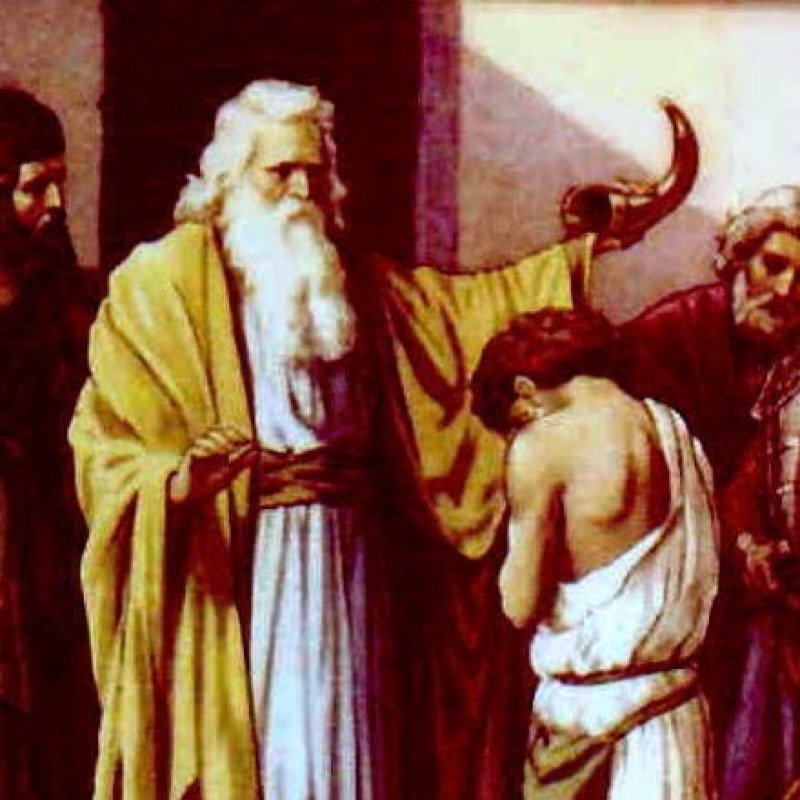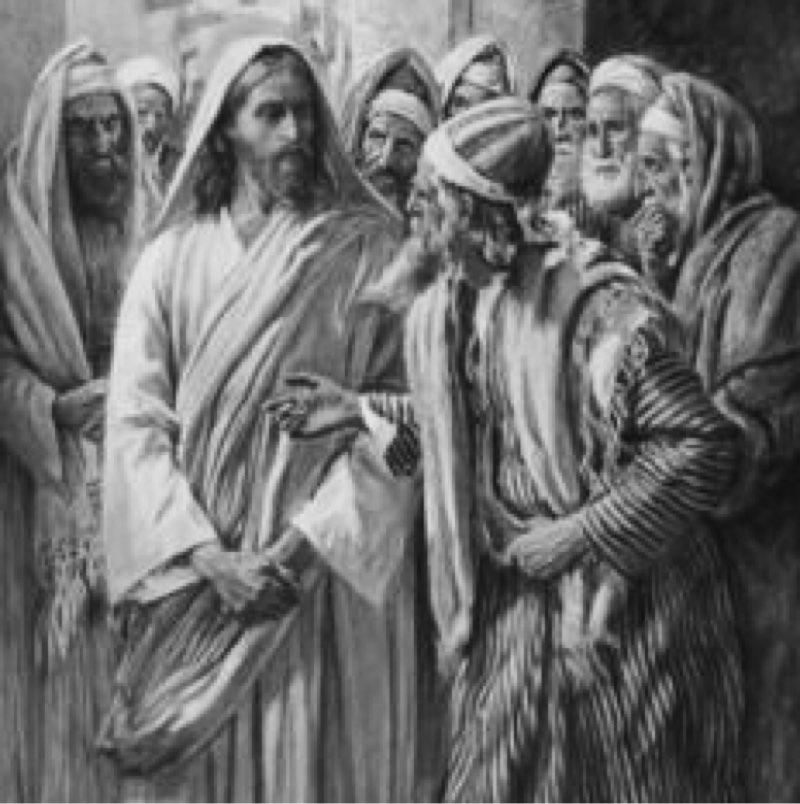Some Muslims argue that in Mark 12, verses 35 to 37, Jesus denies that the messiah Jews are awaiting is a descendant of David. This account is also included in Luke 20, verses 41 to 44 and Matthew 22, verses 41 to 46. They point out that Jesus refers to Muhammad rather than himself. How can this argument be explained?
The argument involves an interpretation of passages from the New Testament, specifically Mark 12, verses 35 to 37, Luke 20, verses 41 to 44, and Matthew 22, verses 41 to 46.
In these passages, Jesus questions the Pharisees on the identity of the Messiah, pointing out that while the Messiah is traditionally understood to be a descendant of David, David himself calls the Messiah "Lord." This is based on Jesus' reference to Psalm 110, verse 1, where David says, "The LORD said to my Lord, 'Sit at my right hand, until I put your enemies under your feet.'"
Muslims interpret Jesus' questioning as a denial of the belief that the Messiah is a physical descendant of David, suggesting instead a deeper spiritual truth about the Messiah's identity.
This interpretation suggests that Jesus may be indicating the coming of another prophet, Muhammad, according to Islamic belief. Muhammad is regarded as the final prophet and messenger in Islam.
Muslims believe Muhammad to be a descendant of Ishmael, another son of Abraham, thereby linking Muhammad to the Abrahamic lineage but not directly to David. From an Islamic viewpoint, Jesus is a revered prophet and Messiah but not divine or the son of God, as Christianity teaches.
The suggestion that Jesus might be referring to Muhammad in these passages stems from the Islamic view that Muhammad completes the line of prophets and brings the final revelation from God, the Quran, which corrects and completes earlier revelations.
However, this interpretation is not shared by Christian scholars or theologians, who understand these passages as Jesus challenging contemporary Jewish understanding of the Messiah's nature and emphasizing his own divine identity and authority. Christians interpret Jesus' use of Psalm 110, verse 1, as a claim to his divinity and his role as the Messiah, rather than a reference to another prophet to come.
This difference in interpretation showcases the distinct theological foundations of Christianity and Islam, especially concerning the identity and role of Jesus, the concept of messiahship, and the anticipation of future prophets.




